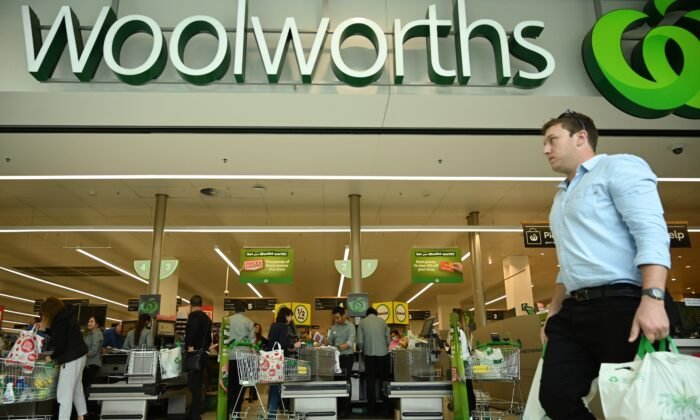Woolworths Declines Cash Withdrawals in Response to Australia’s Shift Towards Cashless Economy
The major grocery chain Woolworths is reducing the amount of cash that can be withdrawn by customers as Australia moves towards becoming a cashless society.
A company spokesperson has said that cash withdrawals will be reduced from $500 to $200 due to a lack of people using the service to make transactions.
“From mid-September, we will be reducing the limit of cash customers can withdraw from our stores per transaction,” a Woolworths spokesperson said.
Woolworths said they will keep withdrawals for customers despite the high cost of keeping cash on the premises.
“We understand cash remains an important payment option for some customers.”
Woolworths abandoned a trial of cashless inner-city Melbourne, Sydney and Brisbane stores in 2021 after fierce opposition from some customers who wish to keep using bills and coins.
A Brisbane Coles has also made news recently for their cash-only check-out machines, outraging some customers about the cashless move and how it affects the disabled and elderly.
Australia Moving Rapidly Towards a Cashless Society
The use of cash has been declining rapidly since 2007, when the Reserve Bank of Australia (RBA) started its Consumer Payments Survey (CPS).
The COVID-19 pandemic was also partly to blame for Australians’ rapid ditching of cash over the past few years.
RBA data also shows that respondents in their survey said that privacy concerns were one of the most important reasons why people need to use cash.
When asked why people hold onto cash, respondents chose emergency transactions as the main reason.
“Cash Ban Law” Scrapped
The decision from Woolworths comes after a controversial law that would have seen cash transactions of over $10,000 to businesses with an Australian Business Number made illegal was scrapped in the senate in 2020.
“This bill was never about tackling crime or money laundering, and instead criminalised the use of legal tender, cash, for everyday Australians,” said One Nation Senator Malcolm Roberts, who moved the motion to scrap the bill in 2020.
Another type of currency that could replace cash—and even digital cash through the bank—is the Central Bank Digital Currencies (CBDCs).
Critics have warned that CBDCs—a digital dollar that would be issued directly by the central bank instead of through a private bank—could set the stage for a ‘social credit system’ by allowing the money to be ‘programmable’ so it can only be spent on certain goods.
CBDCs are also different from cryptocurrencies which are a deregulated blockchain technology.
The RBA is currently in the research phase, with a recent report indicating that any implementation of CBDCs is still years away.
Atlantic Council. The USA, Canada and the UK are among the nearly 100 countries in the development phase of the digital currency.
report by the Federal Reserve.






